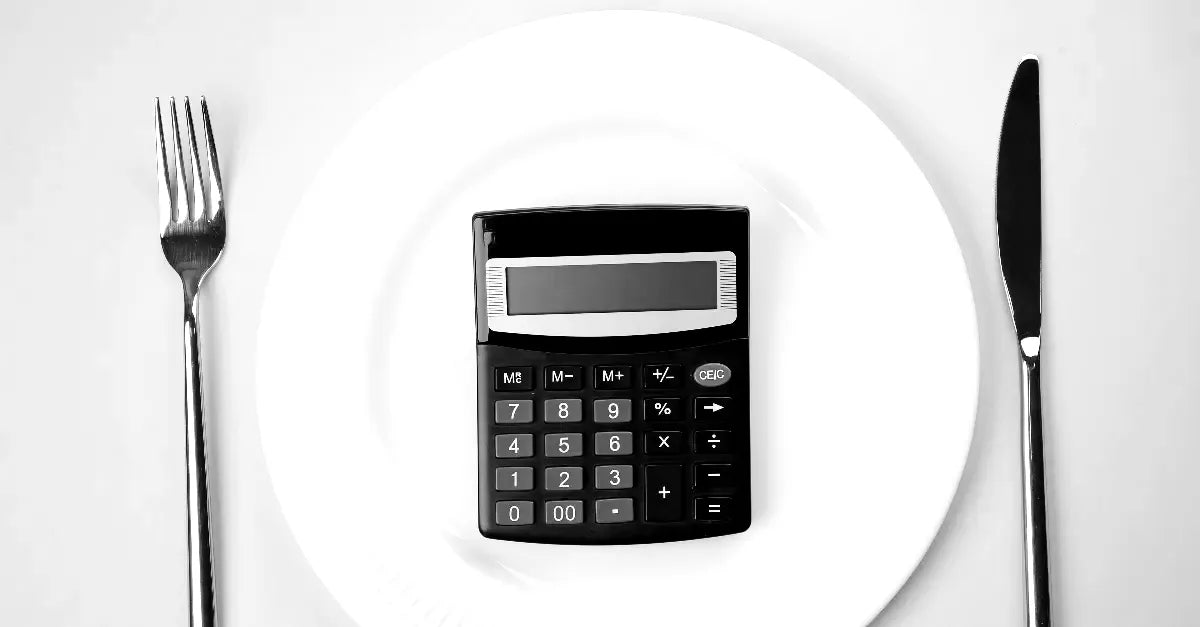
Discover the Ultimate Guide to Feeding Your Family in Emergencies: Calculate Calories, Nutrients and More!
When it comes to preparing for emergencies or disasters, it's important to consider how much food your family will need to survive for a given period of time. Calculating the number of calories or kilojoules your family will need can help ensure that you have enough food to meet your basic nutritional needs.
To calculate the amount of calories your family will need, you can use an online calorie calculator or consult with a registered dietitian, or use the formula provided below.
As a general guideline, the average adult needs approximately 2000-2500 calories per day, but this may vary depending on factors such as age, gender, weight, and activity level.
You can calculate the total number of calories needed for a given period of time by multiplying the daily calorie needs by the number of days. For example, if you're preparing for a 3-day emergency, you would need approximately 6000-7500 calories per person. To work out how many kilojoules are required, multiply the number of calories by 4.184. For example, if you calculated that your family needs 2000 calories per day, that would be equal to approximately 8372 kilojoules (2000 x 4.184).
In addition to calculating the total number of calories needed, it's important to consider the recommended daily nutritional requirements for protein, fat, and carbohydrates. Protein is essential for building and repairing tissues, while fat provides energy and helps the body absorb certain vitamins. Carbohydrates are the body's primary source of energy. The recommended daily intake of each macronutrient may vary depending on individual needs, but as a general guideline, adults should aim for at least 0.8 grams of protein per kilogram of body weight, no more than 20-35% of their daily calories from fat, and 45-65% of their daily calories from carbohydrates.
When preparing for an emergency, it's important to choose foods that are shelf-stable, easy to prepare, and nutrient-dense. Freeze dried goods, such as animal (meat) proteins, vegetables and fruits, are good options. You may also want to consider including other shelf-stable foods that are high in protein and healthy fats, such as nuts and seeds.
It's important to remember that the nutritional needs of each family member may vary depending on their age, gender, and health status. Infants, young children, and pregnant or breastfeeding women may require additional nutrients. If you have any specific dietary requirements or health concerns, consult with a registered dietitian or healthcare provider for personalised recommendations.
Using a Calculation Formula
Assuming the following information is available:
- Body weight of each family member in kilograms
- Recommended percentage of daily calories from fat and carbohydrates
Using Excel for the calculation, the formula for calculating the recommended daily calorie needs of a family of four, including protein, fat, and carbohydrates, would be:
= ((SUM(weight1, weight2, weight3, weight4) * 0.8 * 4) + ((SUM(calories)*fat%)/9) + ((SUM(calories)*carb%)/4)) * 4
In this formula, "weight1" through "weight4" represent the body weight of each family member in kilograms, "calories" represents the total daily calorie needs of the family (2000-2500 per person), and "fat%" and "carb%" represent the recommended percentage of daily calories from fat and carbohydrates, respectively.
For example, if the body weights of the family members are 70kg, 60kg, 50kg, and 40kg, and the recommended percentage of daily calories from fat and carbohydrates are 20% and 50%, respectively, the formula would look like this:
= ((SUM(70, 60, 50, 40) * 0.8 * 4) + ((SUM(8000)*0.2)/9) + ((SUM(8000)*0.5)/4)) * 4
In this formula, protein is calculated by multiplying the recommended daily intake of 0.8 grams of protein per kilogram of body weight by the individual's body weight in kilograms and then multiplying that by 4 (the number of calories per gram of protein). Fat and carbohydrates are calculated by multiplying the percentage of daily calories from each macronutrient by the total daily calorie needs and then dividing by the number of calories per gram of fat or carbohydrate (9 for fat and 4 for carbohydrates). The sum of these three calculations is then multiplied by 4 to obtain the total daily calorie needs for a family of four.
Again, this formula can be adjusted based on the specific calorie and macronutrient needs of each family member. It's important to consult with a registered dietitian or healthcare provider for personalised recommendations.
In conclusion, calculating the number of calories and macronutrients your family will need for survival can help ensure that you have enough food to meet your basic nutritional needs during an emergency or disaster. Choose nutrient-dense, shelf-stable foods that are easy to prepare and consider the individual needs of each family member. With proper planning and preparation, you can help ensure the health and wellbeing of your family during uncertain times.

Leave a comment